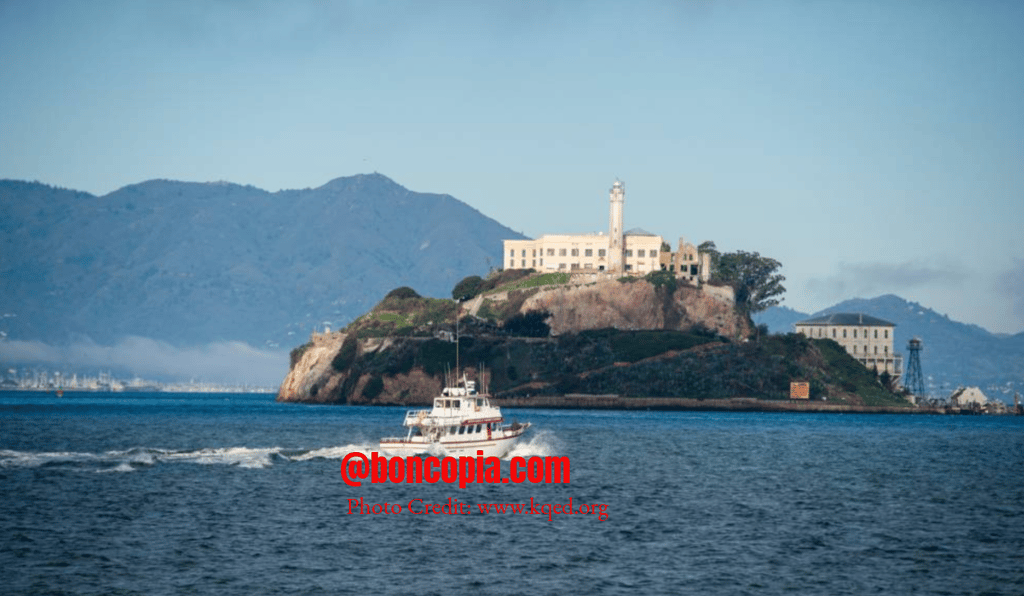Alcatraz Reimagined: Trump's Bold Prison Proposal Sparks Debate
5/19/20253 min read


Alcatraz Reimagined: Trump's Bold Prison Proposal Sparks Debate
In a recent Fox News interview, William Marshall III, the newly appointed director of the Federal Bureau of Prisons, expressed enthusiasm for Donald Trump's proposal to reopen and expand Alcatraz as a prison for "ruthless and violent offenders." This idea, while audacious, has ignited a firestorm of debate, mixing historical reverence with practical skepticism. Let's dive into the details and explore the implications of turning one of America's most iconic landmarks back into a maximum-security facility.
The Proposal: A Historical Twist
Trump's vision to repurpose Alcatraz, famously known as "The Rock," harkens back to its days as a federal penitentiary from 1934 to 1963. Marshall, in the interview, likened the prospect to the excitement of iconic sports venues like Fenway Park, Wrigley Field, and Lambeau Field, suggesting a sense of grandeur and possibility. However, this comparison raises eyebrows, as the historical and cultural significance of Alcatraz as a National Park since 1972 contrasts sharply with its grim past.
The Practical Challenges
Reopening Alcatraz is no small feat. The island, now a part of the Golden Gate National Recreation Area, attracts over 1.4 million visitors annually. Converting it back to a prison would require navigating significant logistical, financial, and legal hurdles. Experts estimate that the cost could soar into the billions, considering the need for modern infrastructure, security systems, and compliance with current prison standards. Moreover, the National Park Service's role and the island's status as a National Historic Landmark add layers of complexity.
Historical Context and Costs
Alcatraz was closed in 1963 primarily due to its exorbitant operational costs—nearly three times higher than other federal prisons at the time. Today, with per capita costs for inmates ranging from $120 to $164, the expense of maintaining a facility like Alcatraz could exceed $500 per person. This financial burden, coupled with the island's deterioration and the need for extensive renovations, paints a picture of a proposal that might be more symbolic than practical.
Cultural and Political Implications
The idea of reopening Alcatraz taps into a narrative of toughness on crime, resonating with some segments of the population. However, it also risks alienating others who value the island's role as a cultural and historical site. The proposal's feasibility is further questioned by the political landscape, particularly in California, where local and state resistance could be significant. The mention of the 1996 film "The Rock" in discussions suggests that popular culture might be influencing policy ideas, raising concerns about the decision-making process.
Expert Opinions and Public Reaction
Historians and prison reform advocates have been quick to criticize the plan. They argue that investing in new, state-of-the-art facilities would be a more effective use of resources. Public reaction, as seen on social media platforms like X, ranges from incredulity to outright opposition, with many pointing out the impracticality and the potential loss of a valuable tourist attraction.
The Broader Pattern
This proposal fits into a broader pattern of controversial and seemingly impractical ideas from the Trump administration, such as accepting a $400 million jet from Qatar. These gestures often appear more about making a statement than addressing real-world challenges, potentially influenced by media or cultural references rather than detailed policy analysis.
Conclusion: A Thought-Provoking Debate
The debate over Alcatraz's future is more than just about a prison; it's about how we value our history, allocate our resources, and approach crime and punishment in the 21st century. As we consider such bold proposals, we must weigh the symbolic against the practical, the past against the present.
Thought Questions for Readers:
Is there a place for historical sites like Alcatraz in modern penal systems, or should they remain preserved for cultural and educational purposes?
How should we balance the cost of such ambitious projects against other pressing needs in criminal justice reform?
Does the influence of popular culture on policy decisions undermine the seriousness of governance, or can it sometimes inspire innovative solutions?
This discussion invites us to reflect on the intersection of history, policy, and public opinion, challenging us to think critically about the future of iconic places like Alcatraz.
hello@boncopia.com
+13286036419
© 2025. All rights reserved.